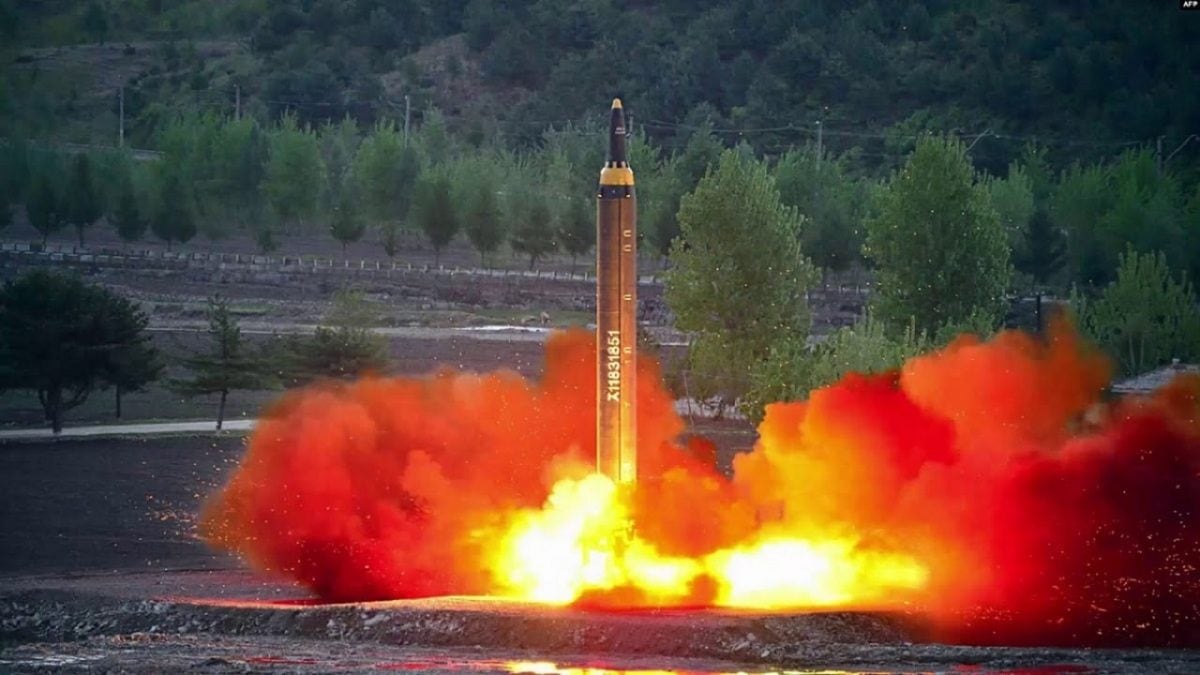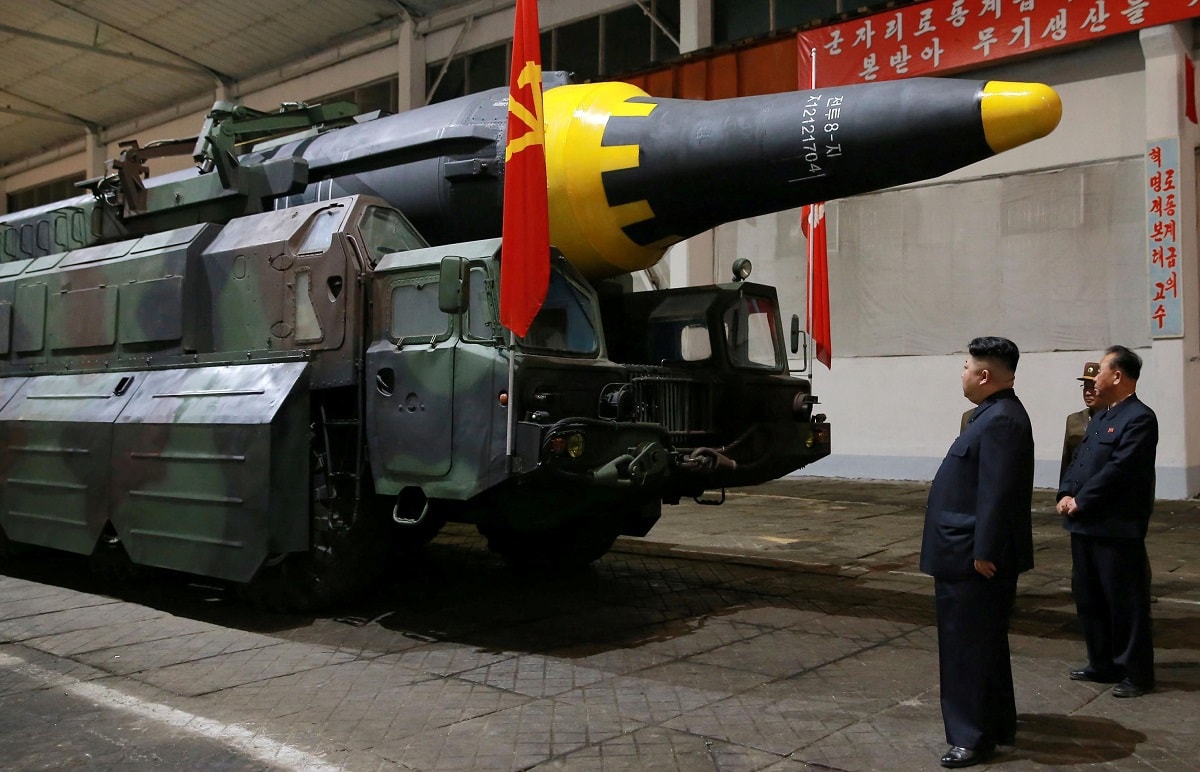We’re into that part of North Korea Outrage response where we all agree that their actions were irresponsible, provocative, dangerous, and unacceptable. The problem is what to do about it.
North Korea is protected in more ways than any other nation. They are useful to China and Russia as a buffer. They serve Russia and China as a useful irritant to the United States, South Korea, Japan and perhaps others. Russia and China will continue to provide support, even if limited. North Korea is incredibly mountainous, with limited rail and road networks, honeycombed with underground tunnels, buried fiber optic cables, and protected spaces. Pyongyang’s subway is so deeply underground that a secondary purpose is clear. No extensive industrial infrastructure presents itself to attack. Even though their army has real issues, including malnutrition limiting the stature of the soldiers, they can be ferocious in their defense because they have no choice. The whole country is an ugly place for ground combat, even if U.S. sea and air superiority is assured.
Our allies and friends share our concerns. All feel the ultimate destiny of North Korea is assured. Not for nothing is it called “the impossible state”. But none wants us to force the issue or try to hasten the denouement. Those nearest North Korea would surely suffer much damage. It’s simply not worth it.
Then there is North Korea’s growing nuclear and missile arsenal. They have proven that organized crime disguised as a country, or perhaps holding a country hostage, can exploit the global black market in weapons, including nuclear technology and materials. North Korea is both a buyer and a seller. Nuclear weapons held by the world’s only hereditary communist autocracy, with little to lose compared to “normal” countries, is a powerful deterrent indeed.
In response to this most recent launch, the U.S. and our allies will likely follow our usual script. The usual condemnations will be issued. Sanctions will be declared, and imposed, described as the toughest ever. New approaches to North Korea will be mooted. “What does Kim REALLY want?” will be a popular question in some quarters. All of this will be necessary. Everybody should be heard. All possible courses of action should be examined in something this serious. But ultimately, if the past is prologue, all of this will be “gardening” in former Secretary of State Schultz’s famous metaphor. Necessary, but never complete, as the weeds grow back.
A real breakthrough would be achieving deterrence by denial. We need a comprehensive multi-domain surveillance network and ready shooters. Immediate launch detection followed by target-quality data on the missile passed to the most advantageous shooter on the network that fires autonomously or near-autonomously. Large doses of autonomy and artificial intelligence are needed to achieve an effective, near-instant, response. The goal is boost phase or early ascent phase intercept. Destroying an enemy missile over enemy territory, especially if it is armed with a weapon of mass destruction, is a very good thing.
The components of such a system would include many components that are valuable for other purposes against other foes. A constellation of the right satellites in low earth orbit, being built now, is needed. An unmanned aerial vehicle force with electro-optical and infrared sensors to reinforce our surveillance adds redundancy. Other fixed wing assets, manned and unmanned, carrying ready weapons and a master arming switch in the “armed” position, buttressed by ships and ground vehicles with the necessary high-speed weapons at the ready, all connected within an artificial-intelligence-enabled network rounds out the “deterrence by denial” force.

Hwasong-12 IRBM. Image Credit: North Korea State Media.
All of this is within reach to defend two of the world’s great cities, and other national infrastructure. It adds a critical early layer of defense for the United States. It puts us and our allies in the favorable position of devoting defense resources to protect civilians, their workplaces, and their homes. And the technology developed and matured in this effort is readily usable for many other purposes.
How much longer do we want to watch North Korea and endure impotent frustration?
Lieutenant General Wallace “Chip” Gregson joined The Roosevelt Group as a Senior Advisor after over 30 years of service in the U.S. Marine Corps. Prior to retirement, Chip served as the Assistant Secretary of Defense, Asian and Pacific Security Affairs. He also served as Commanding General of Marine Corps Forces Pacific and Marine Corps Forces Central Command, where he led and managed over 70,000 Marines and Sailors in the Middle East, Afghanistan, East Africa, Asia, and the United States.

